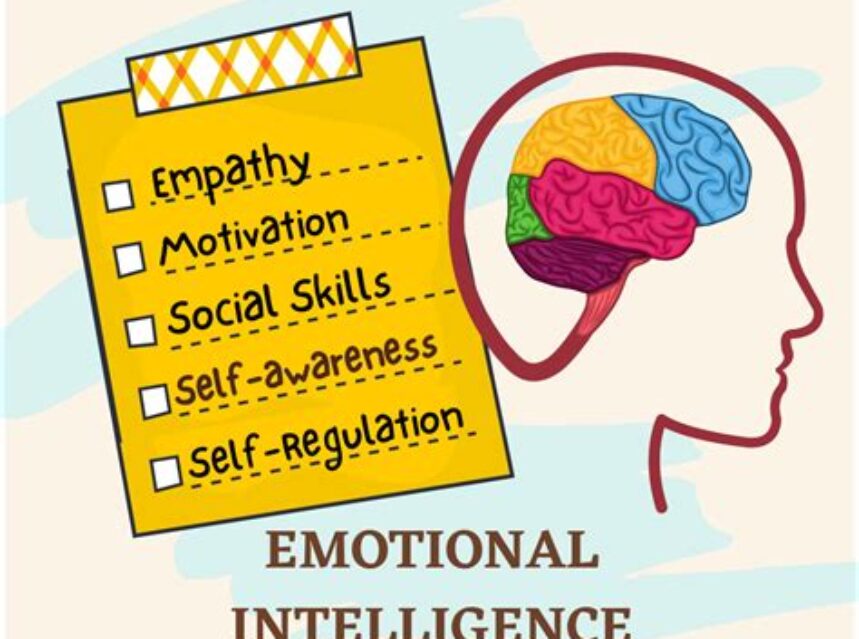Understanding the Role of Emotional Intelligence in Marketing and Branding

Discover the importance of emotional intelligence in marketing and branding, and learn how it impacts consumer behavior. Develop strategies and measure results effectively.Emotional intelligence is a critical component of successful marketing and branding strategies. Understanding and effectively utilizing emotional intelligence can make a substantial impact on consumer behavior and brand success. In this blog post, we will explore the various aspects of emotional intelligence in marketing and branding, from defining emotional intelligence in a marketing context to the importance of emotional intelligence in branding. We will also delve into how emotional intelligence directly impacts consumer behavior and how to develop effective emotional intelligence strategies for marketing efforts. Additionally, we will discuss the crucial process of measuring the results of emotional intelligence in marketing to gauge the effectiveness of these strategies. By the end of this post, you will have a comprehensive understanding of the role of emotional intelligence in marketing and branding, and how to leverage it for a more successful brand presence.
Defining Emotional Intelligence in Marketing
Emotional intelligence in marketing refers to the ability to understand and manage emotions in the context of promoting products or services. It involves being aware of one’s own emotions as well as the emotions of consumers, and using this awareness to make strategic decisions. This form of intelligence is crucial in marketing as it allows businesses to create more meaningful and impactful campaigns that resonate with their target audience.
Furthermore, emotional intelligence enables marketers to build long-lasting relationships with consumers by fostering trust and loyalty. By understanding the emotional needs and desires of their target audience, businesses can tailor their marketing efforts to establish a genuine connection, ultimately leading to greater customer satisfaction and retention.
Moreover, emotional intelligence plays a significant role in guiding the tone and messaging of marketing communications. Marketers with high emotional intelligence are better equipped to communicate in a way that is empathetic, relatable, and authentic, thereby fostering a deeper emotional connection with consumers.
In essence, defining emotional intelligence in marketing involves recognizing the paramount importance of emotions in consumer decision-making, and leveraging this understanding to create impactful marketing strategies that resonate on a deeper level.
Importance of Emotional Intelligence in Branding
Emotional intelligence plays a crucial role in the success of a brand. Brands that are able to connect with their audience on an emotional level are more likely to create loyal customers who are willing to advocate for the brand. This emotional connection is what sets brands apart from their competitors and creates a lasting impact on consumers.
When a brand understands the emotions and motivations of their target audience, they are able to tailor their messaging and imagery in a way that resonates with their customers. This can lead to increased brand loyalty, higher customer satisfaction, and ultimately, greater brand success.
Furthermore, emotional intelligence in branding allows companies to anticipate and respond to consumer needs in a more empathetic and understanding manner. This can result in more effective marketing strategies and a stronger brand image that is able to stand out in a crowded marketplace.
In essence, emotional intelligence in branding is essential for creating meaningful connections with consumers, understanding their needs, and ultimately building a strong and reputable brand presence in the market.
How Emotional Intelligence Impacts Consumer Behavior
Consumer behavior is heavily influenced by emotional intelligence, which plays a significant role in the decision-making process. When consumers are making purchasing decisions, they are not only considering the product’s features and price, but also the emotional connection they have with the brand. Brands that exhibit high levels of emotional intelligence are able to connect with their audience on a deeper level, creating a sense of trust and loyalty.
Emotional intelligence allows marketers to understand the emotional needs and desires of their target audience, enabling them to create marketing campaigns that resonate with their customers on a personal level. By tapping into the emotions of consumers, brands can elicit positive feelings and associations, ultimately influencing their purchasing behavior.
Furthermore, emotional intelligence enables brands to anticipate and respond to the changing needs and preferences of consumers. By continuously monitoring and analyzing emotional triggers, marketers can adapt their strategies to align with the evolving consumer behavior, ensuring that they remain relevant and appealing to their target audience.
In conclusion, emotional intelligence has a profound impact on consumer behavior, shaping the way individuals perceive and interact with brands. By leveraging emotional intelligence in marketing strategies, brands can forge stronger connections with consumers, drive purchasing decisions, and ultimately achieve greater success in the competitive marketplace.
Developing Emotional Intelligence Strategies for Marketing
Emotional intelligence is crucial in the field of marketing as it allows businesses to better understand and connect with their target audience. Developing emotional intelligence strategies can help businesses create more impactful marketing campaigns that resonate with consumers on a deeper level.
One key strategy for developing emotional intelligence in marketing is to conduct in-depth research on the target audience. This involves gathering data on consumer behavior, preferences, and emotions to better understand their needs and desires. By gaining insight into the emotional drivers of their target audience, businesses can tailor their marketing strategies to create more meaningful connections with consumers.
Another important aspect of developing emotional intelligence strategies for marketing is to prioritize empathy and understanding. This means putting oneself in the shoes of the consumer and considering their emotional responses to marketing initiatives. By taking into account the emotions and experiences of the target audience, businesses can create more authentic and relatable marketing content.
Furthermore, implementing emotional intelligence training for marketing teams can greatly improve their ability to connect with consumers on an emotional level. This training can include techniques for active listening, understanding non-verbal cues, and effectively communicating empathy in marketing efforts. By equipping marketing teams with the tools to better understand and connect with consumers, businesses can develop more effective strategies for building emotional connections with their audience.
Measuring the Results of Emotional Intelligence in Marketing
Measuring the Results of Emotional Intelligence in Marketing
Measuring the impact of emotional intelligence on marketing efforts is crucial in determining the success of a campaign. It is important to understand how the emotional connection between a brand and its consumers translates into tangible results. Through various metrics and analysis, marketers can gain valuable insights into the effectiveness of their emotional intelligence strategies.
One way to measure the results of emotional intelligence in marketing is by analyzing consumer engagement. This can include tracking social media interactions, website traffic, and email open rates. By understanding how consumers are interacting with the brand on an emotional level, marketers can gauge the effectiveness of their emotional intelligence efforts.
Another important aspect to consider is the impact of emotional intelligence on brand loyalty and customer retention. By analyzing customer feedback, repeat purchases, and customer lifetime value, marketers can measure the long-term effects of emotional intelligence on consumer behavior.
Furthermore, conducting surveys and focus groups can provide valuable qualitative data on the emotional connection consumers have with a brand. By gathering insights directly from the target audience, marketers can gain a deeper understanding of how emotional intelligence is influencing consumer perceptions and behavior.
Frequently Asked Questions
What is emotional intelligence in the context of marketing?
Emotional intelligence in marketing refers to the ability to understand and connect with consumers on an emotional level, addressing their needs, desires, and values.
How does emotional intelligence impact branding?
Emotional intelligence allows brands to create authentic connections with customers, leading to increased loyalty, positive brand perception, and higher customer retention.
What are the key components of emotional intelligence in marketing?
Key components include empathy, self-awareness, social skills, and the ability to manage emotions, all of which contribute to building meaningful relationships with consumers.
Can emotional intelligence be measured in marketing campaigns?
Yes, through consumer feedback, surveys, and analyzing consumer behavior, emotional intelligence in marketing campaigns can be evaluated and improved.
How can marketers improve their emotional intelligence skills?
Marketers can improve their emotional intelligence skills by actively listening to customers, seeking feedback, and understanding cultural and demographic differences in consumer behavior.
What are the benefits of incorporating emotional intelligence into marketing strategies?
Benefits include increased customer satisfaction, brand loyalty, competitive advantage, and a deeper understanding of consumer motivations and preferences.
Is emotional intelligence equally important for B2B marketing?
Yes, emotional intelligence is crucial in B2B marketing as it helps build trust, strengthens business relationships, and enhances communication and collaboration with business clients.



